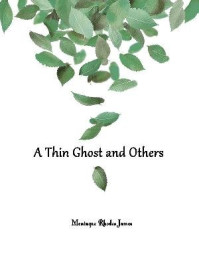




“Another instance of the same kind is related of a horse belonging to a carter in Fifeshire. From the carter having a large family, this animal had become particularly intimate with children, and fond of them, so that he would not on any account, move when they were playing among his feet.
“One day, when he was dragging a loaded cart through a narrow lane near the village, a young child happened to be playing in the road, and would inevitably have been crushed by the wheels, had it not been for the kindness of the animal. He carefully took it by the clothes with his teeth, carried it for a few yards, and then placed it on a bank by the wayside, moving slowly all the while, and looking back, as if to satisfy himself that the wheels of the cart had cleared it.”
“The effect of kind treatment,” rejoined his brother, smiling at Minnie’s delight, “was particularly manifest by a horse belonging to a gentleman in England, called Colonel Smith. The charger had belonged to him for two years, and became greatly attached to him; but he was at last obliged to leave it with the army, though it was subsequently sold and carried back to London. About three years after, Colonel Smith chanced to travel to London by the mail coach, and while they were changing horses, the off side one attracted his attention. Going near, the affectionate animal at once recognized him, testifying its satisfaction by rubbing its head against his clothes, and making every moment a little stamp with his fore feet, till the coachman asked, ‘Are you not an old acquaintance, sir?’
“The same gentleman says there was a most beautiful and powerful charger belonging to a friend of his, then a captain in the fourteenth dragoons, which was bought by him in Ireland, at a low price, on account of his viciousness, which had cost the life of one or two grooms. The captain was a celebrated rider, not to be thrown by the most violent efforts, and of a temper so gentle and patient that he could effect a cure if vice were curable.
“After some very dangerous combats with his horse, the animal was subdued, and became so attached that his master could walk any where, with him following like a dog, and even ladies could mount him with perfect safety. He rode him during several campaigns in Spain, and on one occasion, when, in action, horse and rider came headlong to the ground, the animal, making an effort to spring up, placed his fore foot on the captain’s breast, but, immediately withdrawing it, rose without hurting him, or moving till he was remounted.”
A few days later, and while his brother and wife were still visiting them, Mr. Lee invited some of his city friends to come out and make their acquaintance. They were all seated at dinner when they heard Leo barking in a manner to express great joy. As the noise continued, Mrs. Lee allowed Minnie to see what occasioned the rejoicing.
When she reached the door, she saw a gentleman mounted on a handsome gray horse, near the stable door, talking to Leo. There was something about him which riveted her attention, and presently, with a joyful cry, she ran forward to welcome uncle Frank, who had just come into port after a long voyage.
In answer to his inquiries for her father and mother, she led him in triumph to the dining hall, where a scene of excitement and pleasure ensued.
Captain Frank Lee was a fine, noble-hearted son of Neptune. Having chosen the sea early in life, he had followed it for many years, rising step by step until he reached his present honorable position. He had become rich, too, as well as his brother, each being benefited by a kind of partnership existing between them; for, while the captain sailed to foreign ports, the merchant supplied the money to freight the vessel, which they owned in equal shares, and to buy goods at a foreign market.
When he had answered some of the numerous questions which were crowded upon him, such as, “How did you come?” “When did you arrive in port?” “Is Louise well?” &c., &c., the captain begged them to reseat themselves at table, adding, “I am as hungry as a bear, and long for some of the home luxuries with which I see your table is spread.”
“Well, Minnie,” he exclaimed, pinching her check, when he had thrice emptied his plate, “I’ll not forget that you were the first one to welcome me; and, by the way, how is Jacko? and how are all the rest of your pets?”
“You had better not name the subject of pets,” cried uncle Harry, laughing, “unless you are willing to be pinned to a chair and tell stories—‘yarns,’ I think you call them—for the next five hours. Now, it’s cats or dogs; then, it’s monkeys or parrots; yesterday, it was horses; and you must rake up your memory for all the stories, true, veritable facts, that you ever heard in your life.”
“I know, I know,” answered the captain, drawing the child toward him, and kissing her as well as his long, thick beard would allow. “Minnie and I are old cronies, and understand each other’s crotchets pretty well. She’s the little puss who threw down a beautiful bracelet I had purchased for her in Paris, and said, ‘Uncle Frank, I don’t care for presents unless they’re alive.’ So, the next voyage, I brought her a live present, in the shape of a grinning monkey, with which she was greatly delighted.”
A roar of laughter from the company followed; but while they were eating the fruit, Min nie found an opportunity to whisper,—
“You can’t think, uncle, what funny things my pony does. He knows how to dance beautifully.”
“I should admire to see him,” returned the captain, glancing roguishly toward his sister-in-law; “and you can’t guess what I’ve brought for you this time.”
“Alive, is it?”
“Yes; alive and squealing when I left the vessel. You’ll see it, or them, to-morrow, and I hope you’ll be as pleased as you were with Jacko.”
After dinner, the party adjourned to the piazza, when the captain said, “Leo, good fellow, knew me at once, in spite of my heavy beard; but he looked rather shy at my new horse; and, by the way, Prince is well worth showing. I brought him in the ship with me from England, and I wouldn’t take a thou sand dollars for him, if that sum were offered me to-day.”
“Let’s go and see him!” exclaimed Mr. Harry Lee. “You were always a good judge of horseflesh, Frank.”
After the animal had gone through a thorough examination of his qualities for the carriage, the saddle, &c., and the different gentlemen had given their opinion of his various excellences, the conversation turned, to Min nie’s delight, on horses in general, and many anecdotes were related of their bravery, their fidelity to their masters’ interests, their sagacity and memory, some of which I shall repeat in this and the next chapters.
“An instance of the latter trait, combined with reason,” said Mr. Harry Lee, “is well authenticated.
“A cart horse, owned by Mr. Leggat, of Glasgow, had been several times afflicted with disease, and as often cured by Mr. Downie, farrier there. He had not, however, been troubled for a long time; but on a recurrence of the disorder, he happened one morning to be employed in College Street, a distance of nearly a mile from Mr. Downie’s workshop. He was arranged in a row with other horses engaged in the same work; but when the carters were absent, he left the range, and, unattended by any driver, went down High Street, along the Gallowgate, and up a narrow lane, where he stopped at the farrier’s door.
“As neither Mr. Leggat nor any one appeared with the horse, it was surmised that he had been seized with his old complaint. Being unyoked from the cart, he lay down, and showed, by every means in his power, that he was in distress. He was again treat ed as usual, and sent home to his master, who by that time had persons in all directions in search for him.”


